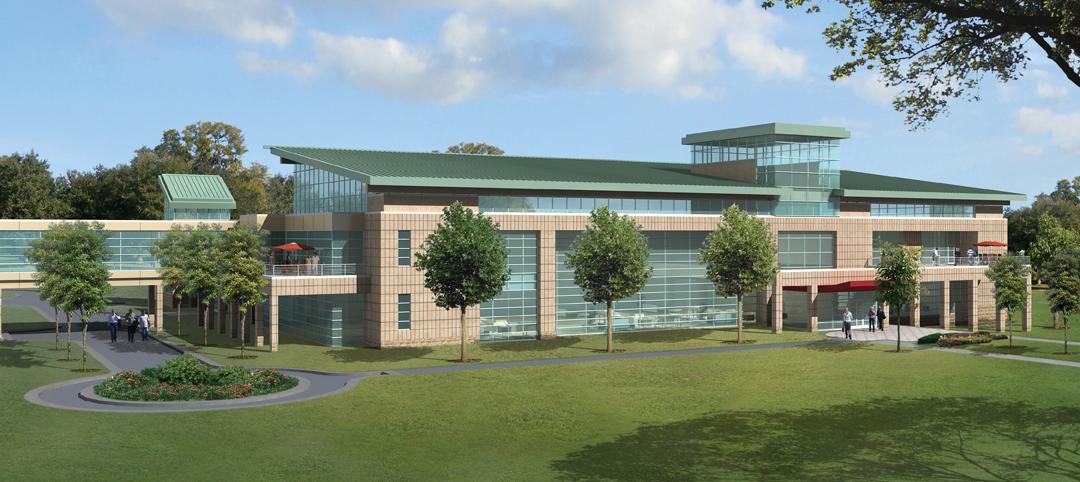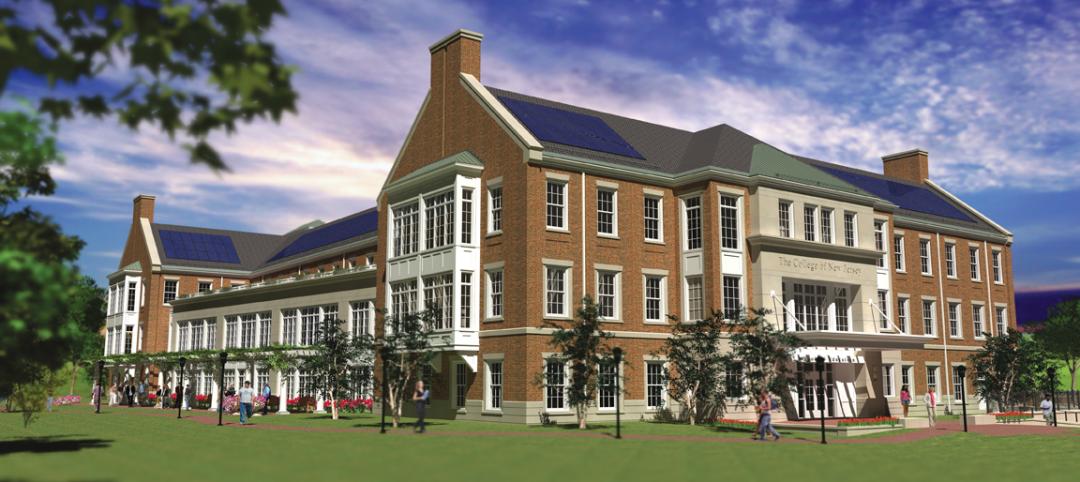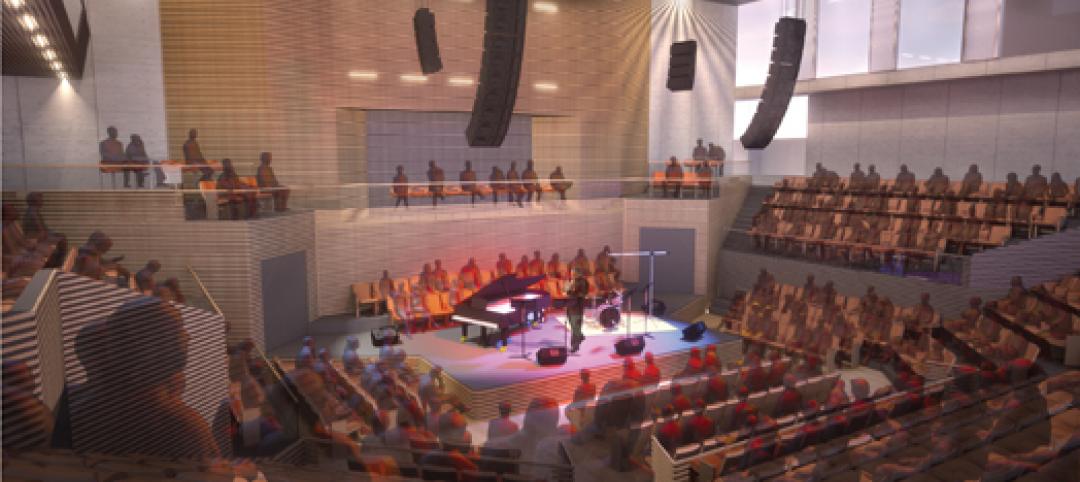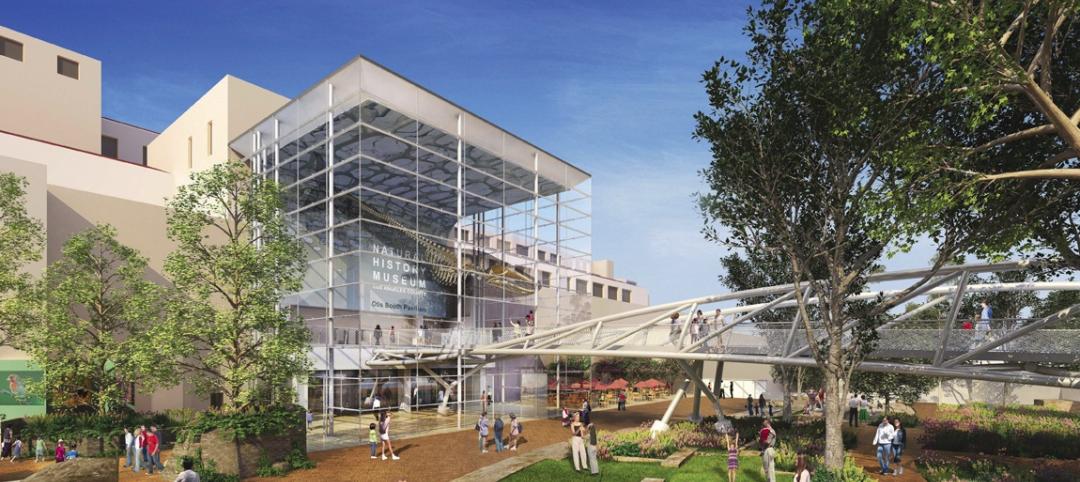The Enterprise Rose Architectural Fellowship and architect Lawrence Scarpa, FAIA, have been selected as the 2017 recipients of the Collaborative Achievement Award, which recognizes and encourages distinguished achievements of allied professionals, clients, organizations, architect teams, knowledge communities, and others who have had a beneficial influence on or advanced the architectural profession. The recipients will be honored at the AIA Conference on Architecture 2017 in Orlando.
Enterprise Rose Architectural Fellowship
Launched in 2000 by affordable housing and community development organization Enterprise Community Partners, The Enterprise Rose Architectural Fellowship is recognized for cultivating a generation of architects committed to bringing the economic, health and education benefits of quality design to low-income communities. Enterprise believes architects are a critical part of the solution to end the growing housing insecurity crisis in the U.S. which forces more than one in four renters to pay at least 50 percent of their income on their home, risking their health, education and economic mobility.
Founded with a mission to integrate ideals of design excellence within organizations that work with underserved communities, the fellowship has paired its fellows with over 75 organizations serving diverse geographies and communities. Rose Fellows, represented by the country’s finest early-career architects, are continually engaged in pressing issues and propelling the profession forward. Partnering emerging designers with community developers for three years, the fellowship is the premier career path for young architects to support public interest design. To date, the 69 fellows have created or preserved more than 12,000 affordable homes across the country. Fellows sharpen essential architectural skills while developing financing, policy, community engagement and organizing skills, as part of the fellowship's effort to develop architectural leaders who have the empathy, humility and experience to be effective community advocates.
The impact and success of the Enterprise Rose Architectural Fellowship is felt in its ability to define and influence public policy and the frameworks for the design of buildings and communities.
Lawrence Scarpa, FAIA
A unique mix of design excellence, social responsibility, stewardship, and service to the profession has defined Lawrence Scarpa’s 30-year career in architecture. In 2001 Scarpa and Angela Brooks, FAIA, co-founded Livable Places, a nonprofit policy and development organization that actively promotes affordable and sustainable communities. Comprising a cadre of developers, advocates, architects, and bankers led by Scarpa, Livable Places has played an instrumental role in a number of policy changes in California, setting the stage for transformation of the state’s communities.
In Los Angeles the A+D Architecture and Design Museum, which Scarpa co-founded, has established a keen awareness of architecture and design in the everyday life of its visitors. For the past 15 years the museum’s progressive exhibitions, youth-oriented education programs, and community events have celebrated the built environment and examined the issues surrounding it. The museum annually hosts AIA/LA’s 2x8 symposium and exhibition, which Scarpa organized and developed as a Chapter board member. The program highlights exemplary student work from architecture and design institutions throughout California.
Modeled after the Mayors’ Institute on City Design, the Affordable Housing Design Leadership Institute, an initiative devised by Scarpa and Maurice Cox, FAIA, in 2008, assembles leaders in affordable housing for a two-and-a-half-day seminar focused on innovation and best practices. Now administered by Enterprise Community Partners, where Scarpa is an advisory board member, the institute provides year-round assistance to organizations through the Enterprise Rose Architectural Fellowship program and has enabled 60 nonprofits and community groups throughout the country better their communities. The jury for the 2017 Collaborative Achievement Award includes: Illya Azaroff, AIA, (Chair), +LAB architects; Hans Butzer, AIA, Butzer Architects and Urbanism; Damian Farrell, FAIA, Damian Farrell Design Group; Jared Edgar Mcknight, Assoc. AIA, Wallace Roberts & Todd, LLC and Lynn M. Perkins, AIA, Bill & Melinda Gates Foundation.
Related Stories
| Apr 12, 2011
Rutgers students offered choice of food and dining facilities
The Livingston Dining Commons at Rutgers University’s Livingston Campus in New Brunswick, N.J., was designed by Biber Partnership, Summit, N.J., to offer three different dining rooms that connect to a central servery.
| Apr 12, 2011
Retail complex enjoys prime Abu Dhabi location
The Galleria at Sowwah Square in Abu Dhabi will be built in a prime location within Sowwah Island that also includes a five-star Four Seasons Hotel, the healthcare facility Cleveland Clinic Abu Dhabi, and nearly two million sf of Class A office space.
| Apr 12, 2011
Luxury New York high rise adjacent to the High Line
Located adjacent to New York City’s High Line Park, 500 West 23rd Street will offer 111 luxury rental apartments when it opens later this year.
| Apr 12, 2011
College of New Jersey facility will teach teachers how to teach
The College of New Jersey broke ground on its 79,000-sf School of Education building in Ewing, N.J.
| Apr 12, 2011
Mental hospital in Boston redeveloped as healthcare complex
An abandoned state mental health facility in Boston’s prestigious Longwood Medical Area is being transformed into the Mass Mental Health Center, a four-building mixed-use complex that includes a mental health day hospital, a clinical and office building, a medical research facility for Brigham and Women’s Hospital, and a residential facility.
| Apr 12, 2011
Miami courthouse design does justice to children and the environment
Suffolk Construction broke ground recently for the Miami-Dade County Children’s Courthouse, a $328 million project the firm has a 30-month contract to complete.
| Apr 12, 2011
Long-awaited San Francisco center is music to jazz organization’s ears
After 28 years, SFJAZZ is getting its first permanent home. The San Francisco-based nonprofit, which is dedicated to advancing the art of jazz through concerts and educational programs, contracted local design firm Mark Cavagnero Associates and general contractor Hathaway Dinwiddie to create a modern performance center in the city’s Hayes Valley neighborhood
| Apr 12, 2011
Entrance pavilion adds subtle style to Natural History Museum of Los Angeles
A $13 million gift from the Otis Booth Foundation is funding a new entrance pavilion at the Natural History Museum of Los Angeles County. CO Architects, Los Angeles, is designing the frameless structure with an energy-efficient curtain wall, vertical suspension rods, and horizontal knife plates to make it as transparent as possible.
| Apr 12, 2011
BIM Grows Up: Separating Hype from Reality in a 3D World
While BIM adoption still lags in both design and construction, some enterprising owners, architects, and contractors are unlocking the potential of this dynamic technology.
| Apr 12, 2011
Metal cladding: Enhancing design with single-skin panels, MCMs, and IMPs
Single-skin metal panels, metal composite panels, and insulated metal panels can add both aesthetic and functional value to your projects, if you use them correctly.

















